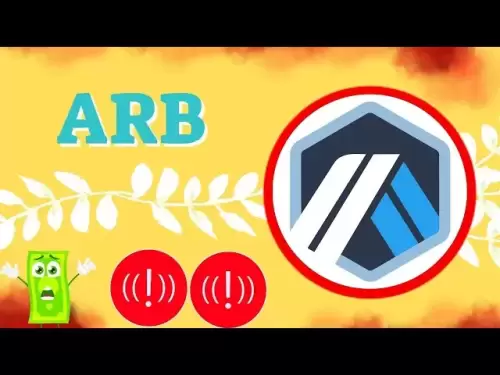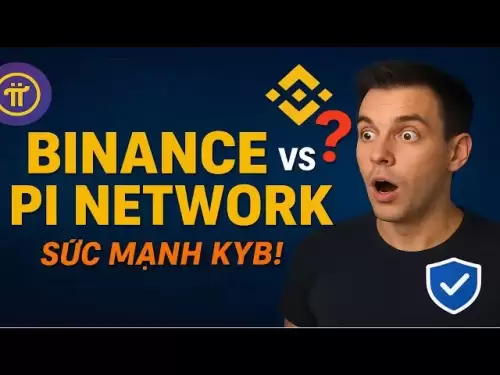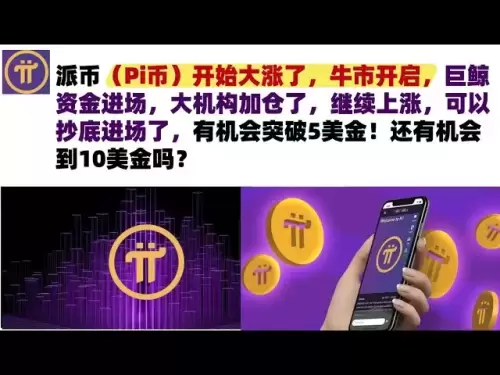-
 Bitcoin
Bitcoin $116900
0.00% -
 Ethereum
Ethereum $4280
5.48% -
 XRP
XRP $3.265
-1.45% -
 Tether USDt
Tether USDt $1.000
-0.01% -
 BNB
BNB $807.0
1.41% -
 Solana
Solana $183.1
2.93% -
 USDC
USDC $0.9999
0.00% -
 Dogecoin
Dogecoin $0.2440
6.50% -
 TRON
TRON $0.3357
-0.88% -
 Cardano
Cardano $0.8178
2.63% -
 Hyperliquid
Hyperliquid $44.13
7.45% -
 Chainlink
Chainlink $21.39
9.09% -
 Stellar
Stellar $0.4524
-0.84% -
 Sui
Sui $3.957
2.13% -
 Bitcoin Cash
Bitcoin Cash $572.7
-2.54% -
 Hedera
Hedera $0.2671
1.54% -
 Avalanche
Avalanche $24.77
4.17% -
 Ethena USDe
Ethena USDe $1.001
0.02% -
 Litecoin
Litecoin $122.3
-1.94% -
 Toncoin
Toncoin $3.432
2.26% -
 UNUS SED LEO
UNUS SED LEO $9.007
0.49% -
 Shiba Inu
Shiba Inu $0.00001396
5.26% -
 Uniswap
Uniswap $11.09
1.64% -
 Polkadot
Polkadot $4.155
4.57% -
 Dai
Dai $1.000
0.00% -
 Pepe
Pepe $0.00001253
5.11% -
 Cronos
Cronos $0.1588
2.67% -
 Bitget Token
Bitget Token $4.512
0.05% -
 Monero
Monero $275.0
0.64% -
 Ethena
Ethena $0.7527
15.10%
Does XRP have smart contract functions? Can it support DeFi?
XRP doesn't have native smart contracts like Ethereum, but Ripple explores DeFi and smart contract-like functions via Interledger Protocol.
May 10, 2025 at 10:14 pm
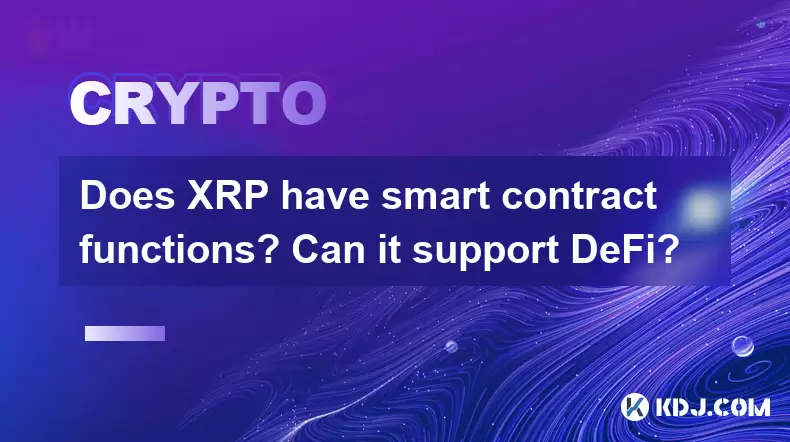
Does XRP have smart contract functions? Can it support DeFi?
The world of cryptocurrencies is constantly evolving, with various projects vying to offer the most innovative and useful features. Among these, XRP, the native cryptocurrency of the Ripple network, has garnered significant attention. A common question among crypto enthusiasts is whether XRP has smart contract functions and if it can support decentralized finance (DeFi) applications. This article delves into these queries, providing a detailed analysis of XRP's capabilities in these areas.
Understanding XRP and the Ripple Network
XRP is the native digital asset of the Ripple network, a payment protocol designed to facilitate fast and low-cost international money transfers. The Ripple network aims to solve some of the inefficiencies associated with traditional banking systems, such as high fees and slow transaction times. XRP serves as a bridge currency, allowing for seamless conversion between different fiat currencies.
While XRP is primarily known for its utility in cross-border payments, the question of whether it can support smart contracts and DeFi is pertinent. Smart contracts are self-executing contracts with the terms directly written into code, and DeFi refers to financial services built on blockchain technology, often utilizing smart contracts.
XRP and Smart Contract Capabilities
Currently, the Ripple network does not natively support smart contracts in the same way that platforms like Ethereum do. Ethereum's smart contract functionality is built into its blockchain, allowing developers to create decentralized applications (dApps) and DeFi protocols. In contrast, the Ripple network's primary focus is on facilitating efficient payments rather than hosting complex smart contracts.
However, Ripple has explored ways to incorporate smart contract functionality. For instance, Ripple's Interledger Protocol (ILP) aims to connect different blockchains and payment systems, potentially allowing for the execution of smart contracts across networks. While this is not the same as native smart contract support, it represents a step towards enabling more complex functionalities on the Ripple network.
Potential for DeFi on the Ripple Network
Given that DeFi applications heavily rely on smart contracts, the lack of native smart contract support on the Ripple network presents a significant challenge for DeFi development. Most DeFi platforms, such as lending protocols, decentralized exchanges, and yield farming applications, require the ability to execute complex logic and interact with multiple parties autonomously.
Despite these limitations, Ripple has shown interest in exploring DeFi opportunities. In 2020, Ripple's CEO Brad Garlinghouse mentioned that the company was looking into DeFi, although specifics on how this would be implemented were not provided. The potential integration of smart contract-like functionality through protocols like ILP could open doors for DeFi on the Ripple network, but as of now, these possibilities remain theoretical.
XRP's Role in DeFi Ecosystems
While XRP itself does not support DeFi applications directly, it can still play a role within the broader DeFi ecosystem. For instance, XRP can be used as collateral in DeFi lending platforms that support multiple cryptocurrencies. Some decentralized exchanges (DEXs) also list XRP, allowing users to trade it against other digital assets.
Additionally, XRP's liquidity and fast transaction times make it an attractive option for certain DeFi use cases. For example, projects that require rapid settlement of transactions could benefit from using XRP as a bridge currency within their DeFi protocols. However, these applications would still need to be built on platforms that support smart contracts, with XRP integrated as an additional asset.
Community and Developer Initiatives
The XRP community and developers have been actively exploring ways to enhance the network's capabilities. Several projects and proposals have been put forward to introduce smart contract functionality to the Ripple network. One notable example is the XRP Ledger's (XRPL) decentralized exchange (DEX) feature, which allows for trustless trading of assets on the network. While not a full-fledged smart contract platform, this feature demonstrates the community's efforts to expand XRPL's utility.
Moreover, third-party developers have created tools and applications that leverage XRP in innovative ways. For instance, some developers have built custodial DeFi applications that use XRP as a settlement layer, although these are not decentralized in the traditional sense. These initiatives highlight the ongoing efforts to push the boundaries of what is possible with XRP and the Ripple network.
Conclusion and FAQs
In conclusion, while XRP does not currently have native smart contract functionality and faces challenges in supporting DeFi applications directly, there are ongoing efforts to explore these possibilities. The Ripple network's focus on payment efficiency and the potential for interoperability through protocols like ILP could pave the way for future developments in this space.
Frequently Asked Questions:
Q1: Can XRP be used in any existing DeFi platforms?
A1: Yes, XRP can be used in some DeFi platforms that support multiple cryptocurrencies. For example, certain lending protocols and decentralized exchanges allow users to deposit XRP as collateral or trade it against other assets. However, these platforms are typically built on other blockchains that support smart contracts, and XRP is integrated as an additional asset rather than being the primary platform for DeFi applications.
Q2: Are there any plans to introduce smart contract functionality to the Ripple network?
A2: While there are no official announcements regarding the introduction of native smart contract functionality to the Ripple network, Ripple has shown interest in exploring DeFi and interoperability solutions. The Interledger Protocol (ILP) is one example of Ripple's efforts to connect different blockchains and payment systems, which could potentially enable smart contract-like functionality across networks.
Q3: How does XRP's transaction speed compare to other smart contract platforms like Ethereum?
A3: XRP transactions are known for their speed, typically settling in 3-5 seconds. In contrast, Ethereum transactions can take significantly longer, often requiring several minutes to confirm. This difference in transaction speed is one of the reasons why XRP is attractive for certain payment use cases, although it does not currently support the same level of smart contract functionality as Ethereum.
Q4: What role does the XRP community play in exploring DeFi and smart contract capabilities?
A4: The XRP community and developers are actively involved in exploring and proposing new features for the Ripple network. Initiatives such as the XRP Ledger's decentralized exchange (DEX) feature and third-party applications that leverage XRP in innovative ways demonstrate the community's efforts to expand the network's utility. While these efforts are ongoing, they highlight the potential for XRP to play a role in the broader DeFi ecosystem.
Disclaimer:info@kdj.com
The information provided is not trading advice. kdj.com does not assume any responsibility for any investments made based on the information provided in this article. Cryptocurrencies are highly volatile and it is highly recommended that you invest with caution after thorough research!
If you believe that the content used on this website infringes your copyright, please contact us immediately (info@kdj.com) and we will delete it promptly.
- Trump, Nasdaq, and Token Treasury: WLFI's $1.5B Gambit
- 2025-08-10 06:50:12
- Trump, Nasdaq, and Token Treasury: WLFI's $1.5B Play
- 2025-08-10 06:30:11
- Coinbase, DEX Trading, and Base Network: A New Era for Crypto?
- 2025-08-10 06:30:11
- Block Inc., Bitcoin, and Mining Chips: Reshaping Digital Finance, New York Style
- 2025-08-10 06:50:12
- Stablecoin Surge Ignites Altcoin Investment Hunt: What's Hot Now?
- 2025-08-10 06:55:16
- Penny Crypto Dreams: Can XRP Reach $10,000? A Look at LILPEPE and the Meme Coin Mania
- 2025-08-10 04:50:11
Related knowledge

How to purchase Aragon (ANT)?
Aug 09,2025 at 11:56pm
Understanding Aragon (ANT) and Its PurposeAragon (ANT) is a decentralized governance token that powers the Aragon Network, a platform built on the Eth...

Where can I buy UMA (UMA)?
Aug 07,2025 at 06:42pm
Understanding UMA and Its Role in Decentralized FinanceUMA (Universal Market Access) is an Ethereum-based decentralized finance (DeFi) protocol design...

How to buy Storj (STORJ) tokens?
Aug 09,2025 at 07:28am
Understanding Storj (STORJ) and Its Role in Decentralized StorageStorj is a decentralized cloud storage platform that leverages blockchain technology ...

What is the best app to buy Nano (NANO)?
Aug 09,2025 at 03:35am
Understanding Nano (NANO) and Its Unique FeaturesNano is a feeless, instant cryptocurrency designed for fast peer-to-peer transactions. Unlike many ot...

Where can I purchase Siacoin (SC)?
Aug 08,2025 at 11:14am
Understanding Siacoin (SC) and Its Role in the Sia NetworkSiacoin (SC) is the native cryptocurrency of the Sia decentralized cloud storage platform, a...
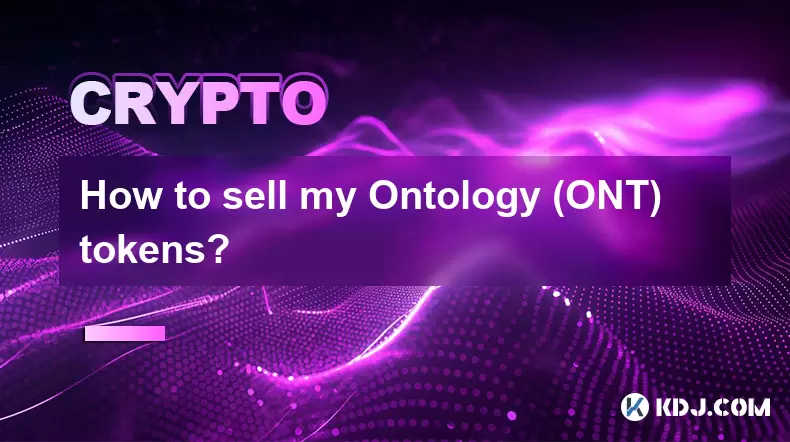
How to sell my Ontology (ONT) tokens?
Aug 09,2025 at 06:08pm
Understanding Ontology (ONT) and Its Trading EcosystemBefore selling your Ontology (ONT) tokens, it's essential to understand the nature of the crypto...

How to purchase Aragon (ANT)?
Aug 09,2025 at 11:56pm
Understanding Aragon (ANT) and Its PurposeAragon (ANT) is a decentralized governance token that powers the Aragon Network, a platform built on the Eth...

Where can I buy UMA (UMA)?
Aug 07,2025 at 06:42pm
Understanding UMA and Its Role in Decentralized FinanceUMA (Universal Market Access) is an Ethereum-based decentralized finance (DeFi) protocol design...

How to buy Storj (STORJ) tokens?
Aug 09,2025 at 07:28am
Understanding Storj (STORJ) and Its Role in Decentralized StorageStorj is a decentralized cloud storage platform that leverages blockchain technology ...

What is the best app to buy Nano (NANO)?
Aug 09,2025 at 03:35am
Understanding Nano (NANO) and Its Unique FeaturesNano is a feeless, instant cryptocurrency designed for fast peer-to-peer transactions. Unlike many ot...

Where can I purchase Siacoin (SC)?
Aug 08,2025 at 11:14am
Understanding Siacoin (SC) and Its Role in the Sia NetworkSiacoin (SC) is the native cryptocurrency of the Sia decentralized cloud storage platform, a...

How to sell my Ontology (ONT) tokens?
Aug 09,2025 at 06:08pm
Understanding Ontology (ONT) and Its Trading EcosystemBefore selling your Ontology (ONT) tokens, it's essential to understand the nature of the crypto...
See all articles





















